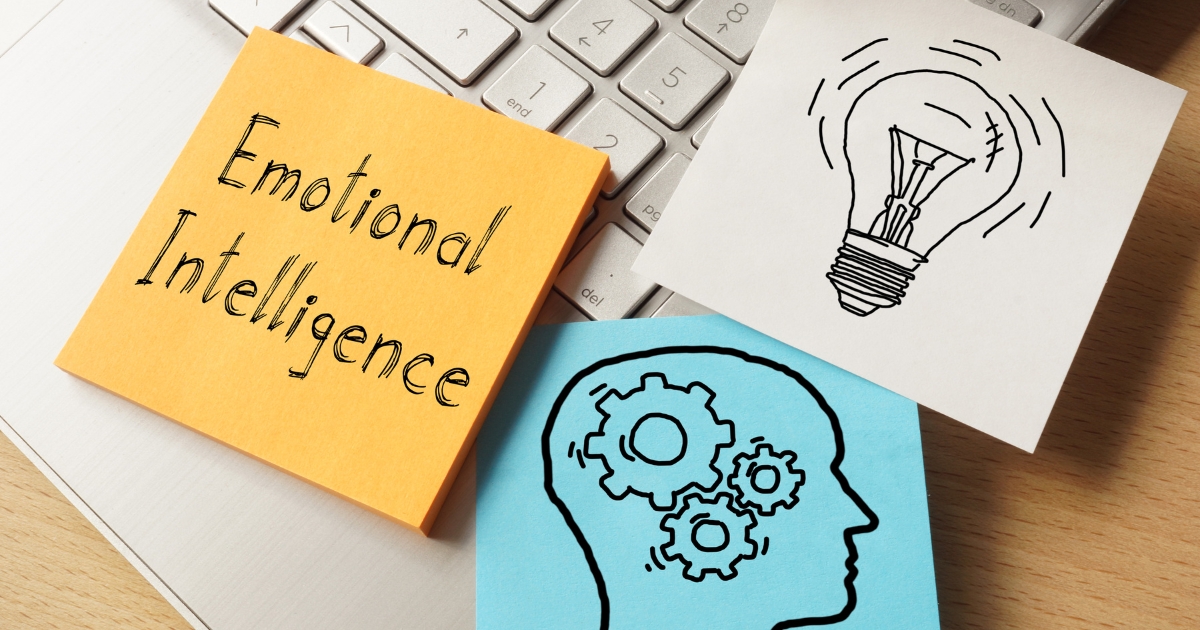
Why Emotional Intelligence is Key in Relationships for Mature Singles
Relationships at any stage of life thrive on communication, empathy, and trust. For mature singles, these qualities are vital, especially when reentering the dating world or navigating new connections. Emotional intelligence (EQ) is the foundation for these qualities, helping you connect on a deeper level and build lasting relationships. Emotional intelligence in dating allows you to understand your partner better, manage conflicts effectively, and foster intimacy in meaningful ways.
By focusing on emotional intelligence, you can create partnerships grounded in understanding and mutual respect. Here, we explore the importance of EQ in relationships and share actionable tips to enhance emotional connections in your dating life.
Understanding Emotional Intelligence And Why It Matters
At its core, emotional intelligence is the ability to recognize, understand, and manage your own emotions while also being aware of others’ feelings. EQ plays a significant role in how we communicate, handle challenges, and build relationships. For mature singles, emotional intelligence is especially powerful because it enables you to approach dating with empathy, intentionality, and self-awareness.
Why does emotional intelligence matter so much in relationships? Here are a few key reasons:
- It Deepens Connections: High EQ allows you to move beyond surface-level interactions and form authentic emotional bonds with your partner.
- It Eases Conflict Resolution: Couples with strong emotional intelligence are better equipped to work through disagreements and find common ground without damaging the relationship.
- It Builds Trust: When you understand and value each other’s emotional experiences, trust develops naturally, creating a strong foundation for the relationship.
- It Encourages Personal Growth: Emotional intelligence fosters self-awareness, which helps you identify areas for growth within yourself and your relationship.
For mature singles, developing these skills can pave the way for richer, more fulfilling connections. Whether you’re starting fresh after losing a partner or exploring love later in life, emotional intelligence provides the tools to approach relationships with confidence and emotional depth.
Building Strong Emotional Connections
Creating emotional bonds starts with a conscious effort to connect beyond just shared interests or physical attraction. Emotional intelligence in dating focuses on understanding your partner’s inner world and allowing them to feel valued and understood. Here are some ways to foster strong connections:
- Listen Fully: Active listening is a crucial element of emotional connection. Give your partner your undivided attention, absorb what they’re saying, and respond thoughtfully. Avoid thinking about your next response while they’re speaking.
- Show Empathy: Empathy is the ability to step into someone else’s shoes and genuinely understand their perspective. Acknowledge your partner’s feelings, even if they’re expressing frustrations or needs that differ from your own.
- Be Vulnerable: Emotional intimacy thrives on vulnerability. Share your feelings openly with your partner and create a safe space for them to do the same. Vulnerability demonstrates your trust in the relationship.
- Celebrate Wins Together: Sharing joys and achievements, no matter how small, strengthens your emotional connection. Celebrate each other’s successes to foster positivity and appreciation.
- Pay Attention to Nonverbal Cues: Your partner’s tone of voice, body language, and facial expressions can reveal how they’re feeling beyond words. Being attuned to these cues helps you respond with greater sensitivity.
Building emotional connections takes effort and time, but it’s a rewarding process. By prioritizing emotional depth in your relationships, you’ll strengthen the bond you share with your partner.

Practical EQ Tips For Mature Relationships
Enhancing emotional intelligence isn’t just about theory; it’s about actionable steps that improve how you relate to yourself and your partner. For mature singles, here are some specific strategies to use in your relationships:
- Practice Self-Awareness:
- Reflect on your emotions and identify triggers that cause stress or conflict.
- Take note of how your feelings influence your behaviors or reactions in relationships.
- Journaling or meditating can help you better understand your emotional patterns.
- Improve Communication Skills:
- Use “I” statements instead of “you” statements during disagreements (e.g., “I feel upset because…” rather than “You always make me upset.”).
- Clarify misunderstandings by paraphrasing what your partner says to ensure you understand their perspective.
- Don’t shy away from emotional conversations; addressing feelings head-on often prevents bigger issues later.
- Control Emotional Reactivity:
- Take a deep breath or pause before responding when you feel triggered during a disagreement.
- Stay calm and focused on resolving the issue rather than escalating tension.
- Practice forgiveness for minor mistakes or misunderstandings to maintain harmony.
- Foster Emotional Safety:
- Encourage an open exchange of feelings without judgment.
- Show your partner that their emotions matter by validating their experiences.
- Avoid sarcasm, criticism, or dismissiveness when discussing sensitive topics.
- Build Emotional Resilience Together:
- Share challenges and work as a team to resolve them.
- Support each other during periods of stress or uncertainty.
- Use setbacks as opportunities to grow closer.
These tips focus on making EQ practical and applicable to real-life dating scenarios. They provide both you and your partner with the tools to handle emotional moments constructively.
Overcoming Challenges with Emotional Intelligence
Even with strong emotional intelligence, relationships can present unique challenges, particularly for mature singles. Whether it’s navigating the lingering pain of past experiences or blending families later in life, EQ can help you address these difficulties with empathy and resilience.
For example, mature singles often bring rich life experiences into relationships, both joyful and painful. While these experiences enrich your perspective, they may also create emotional baggage that needs unpacking. High EQ enables you to approach healing with maturity and work through unresolved issues constructively.
It’s also common for couples later in life to face differing expectations or concerns around independence, finances, or health challenges. Emotional intelligence makes navigating these conversations easier by encouraging open, respectful dialogue. For instance, instead of avoiding topics like financial planning or caregiving responsibilities, approach them with curiosity and a willingness to collaborate on solutions.
No relationship is without challenges, but emotional intelligence acts as a guide to facing them together, rather than as individuals. When you approach obstacles with awareness and understanding, they become opportunities to grow closer.
The Lasting Impact Of EQ In Relationships
For mature singles, emotional intelligence is truly transformative. It elevates the way you view yourself, your partner, and the dynamics of your relationship. By prioritizing EQ, you build not only a stronger partnership but also a healthier relationship with yourself.
One of the most profound impacts of emotional intelligence is the sense of calm and clarity it brings to relationships. Instead of feeling overwhelmed by problems or emotional complexities, you’re able to address them thoughtfully. This ability fosters harmony and strengthens trust between partners.
Additionally, emotional intelligence encourages you to focus on what truly matters in a relationship. It helps you appreciate qualities like kindness, humor, and emotional depth over superficial traits. This shift in focus leads to more meaningful connections that stand the test of time.
Age doesn’t hinder our capacity to love; it deepens it through the wisdom we’ve gained over the years. Emotional intelligence equips mature singles with the tools to approach dating with purpose and positivity, creating relationships that are both meaningful and rewarding.
By nurturing emotional connections, practicing EQ techniques, and valuing self-awareness, you can create a partnership that enriches your life and brings out the best in both you and your partner. Emotional intelligence in dating isn’t just a concept; it’s a practice that has the power to transform and sustain love at every stage of life.











